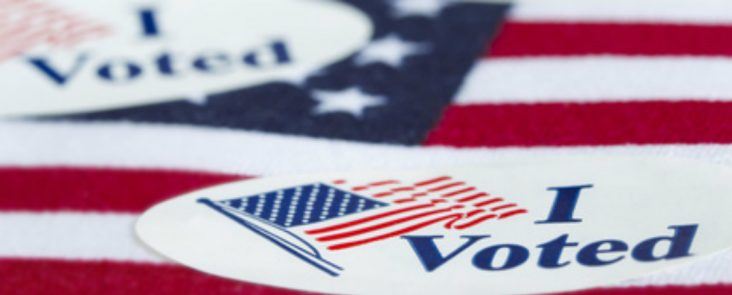Secretary of State says COVID-19 an excuse to vote absentee; plaintiff in suit wants more
by June 26, 2020 4:56 pm 1,103 views

Arkansas voters can request an absentee ballot to avoid exposure to the COVID-19 coronavirus, Secretary of State John Thurston said June 25. But one of the plaintiffs in a lawsuit calling for expanded absentee voting rights said she is only “sort of” satisfied.
Thurston said in his statement that he believes current laws allow voters to request an absentee ballot from their county clerk.
“We are fortunate that our lawmakers had the foresight in crafting our election laws to allow for times of being unavoidably absent whether by natural disaster, war, or global pandemic,” he said.
Arkansas voters must sign a form when voting absentee certifying that they will be “unavoidably absent” on Election Day, that they will be unable to vote in person “because of illness or physical disability,” or that they reside in a state-licensed long-term care or residential facility. They also can vote absentee if they are a member or the spouse of a member of the uniformed services or merchant marines, or if they temporarily live outside the United States.
Written in all-caps at the top of the form are the words, “If you provide false information on this form, you may be guilty of perjury and subject to a fine of up to $10,000 or imprisonment for up to 10 years.”
Thurston said he has received many questions about absentee voting and that he understood many voters are assisting loved ones or are fearful of contracting the virus, exposing a family member, or passing the virus to others in the community. He said his office is preparing for an increase in absentee ballot requests because of the virus.
In his daily press conference, Gov. Asa Hutchinson said Friday (June 26), “We’ll have some more conversations, but we’re hopeful that that might be able to address the problem. Because that’s the goal in my viewpoint is to make sure that people have an opportunity to vote, and they’re not prohibited from voting or they aren’t able to exercise their right to vote because of their concerns about the pandemic. We want voter integrity, but I believe our absentee law is consistent with that.”
Three plaintiffs filed suit In Pulaski County Circuit Court June 23 against Thurston. They asked the court to issue a declaratory judgment finding that Arkansas law allows voters to offer any reason or no reason to vote absentee, or to declare that fear of contracting COVID-19 is a valid excuse. The plaintiffs are Janet Baker, Susan Inman and Olly Neal.
The lawsuit says forcing voters to choose between voting and their health violates the Arkansas Constitution, which says, “No power, civil or military, shall ever interfere to prevent the free exercise of the right of suffrage; nor shall any law be enacted whereby such right shall be impaired or forfeited, except for the commission of a felony, upon lawful conviction thereof.” The lawsuit also asks the court to order Thurston to mail absentee ballot request applications to all registered voters in Arkansas. It says the state could use some of the funding it has received from the federal CARES Act for postage.
Inman said in a text that Thurston is acknowledging fear of COVID-19 as a valid excuse to request an absentee ballot. However, the lawsuit also seeks additional remedies such as paying for the added costs for county clerks to mail absentee ballot materials to voters, postage costs for voters to return it, and other expenses for ensuring voters are informed about how to vote absentee. She said the matter is urgent so the state can be prepared for a significant increase in Arkansas voters because of COVID-19.
“I just want all eligible voters to be able to vote, and vote safely,” she wrote.
The lawsuit references a 1985 Arkansas Supreme Court decision, Forrest v. Baker, in which the court ruled that voters are not required to explain in detail their reason for voting absentee.
“If a real and convincing ‘reason’ should be required, then it follows that someone would have to judge the sufficiency of that reason,” the lawsuit quotes the decision as saying. “Such a procedure could easily result in an elector being compelled to divulge personal secrets in order to exercise his constitutional right to suffrage.”
